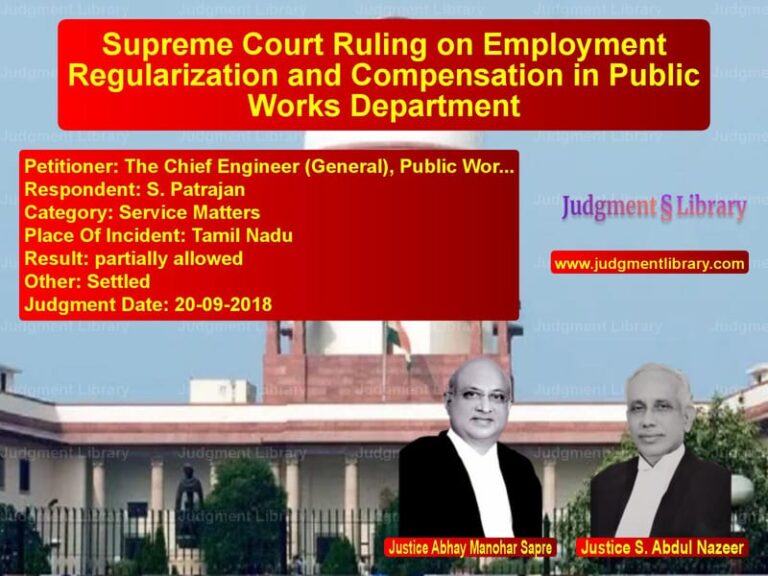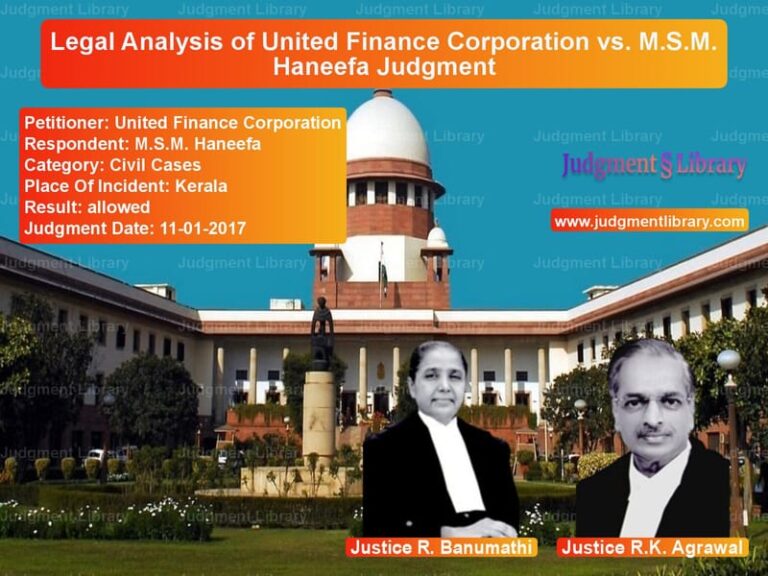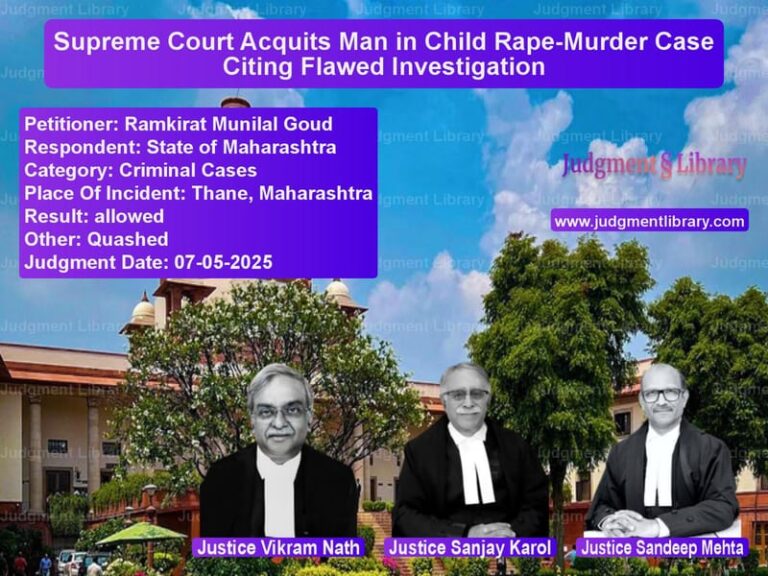Punjab & Sind Bank vs. Debt Recovery Appellate Tribunal: High Court’s Decision and Review Application
The case of PUNJAB & SIND BANK vs. DEBTS RECOVERY APPELLATE TRIBUNAL AND OTHERS revolves around a financial dispute concerning the liability of a guarantor in a loan recovery case. The appellant, Punjab & Sind Bank, contested a decision of the High Court that absolved respondent No.2 from his liabilities as a guarantor, based on an erroneous premise.
Background of the Case
The appellant-bank was aggrieved by the judgment dated 07.04.2008, passed by the High Court in Civil Writ Petition No. 7730 of 2007. The bank had challenged an earlier order dated 09.01.2007 issued by the Debt Recovery Appellate Tribunal (DRAT), New Delhi, in Miscellaneous Appeal No.134 of 2006. The order directed the deletion of respondent No.2 as a defendant/guarantor in Original Application No.343/2004, pending before the Debt Recovery Tribunal (DRT), Chandigarh.
Key Observations of the High Court
The High Court noted that the bank itself had acknowledged that respondent No.2 had resigned from the Board of Directors of respondent No.3 company and that another director had executed a fresh guarantee in his place. The court observed:
“From the above pleadings of the parties, it is crystal clear that the bank has admitted that respondent No.2 had resigned from the Board of Director of respondent No.3-Company and another Director has executed a fresh guarantee substituting him. Thus, it does not lie in the mouth of the petitioner bank to say that respondent No.2 is not absolved of his liability even from the documents placed on record.”
The High Court also stated that the bank’s claim that the new guarantee was an additional guarantee was contradicted by the guarantee deed itself, which was executed for the exact outstanding amount of Rs.6,70,51,800.85.
Arguments of the Appellant (Punjab & Sind Bank)
- The appellant contended that no guarantee had been executed by anyone in substitution of the original guarantee provided by respondent No.2.
- The bank argued that a fresh guarantee executed by Mr. Sharanpal Singh Juneja in place of respondent No.2 was misinterpreted by the High Court.
- The appellant asserted that the High Court’s decision was based on an incorrect assumption and required a review.
Supreme Court’s Judgment
The Supreme Court acknowledged the error in the High Court’s interpretation and directed the appellant to file a review application to correct the record. The court ruled:
“Since the High Court has proceeded on the basis that there is already a guarantee executed by Shri Juneja substituting the respondent No.2, we find there is an error apparent on the face of the record for which the appellant has to approach the High Court itself by way of an application for review.”
The Supreme Court permitted the appellant to file the review application within a month, clarifying that it should not be dismissed on grounds of limitation.
Conclusion
The case underscores the importance of clear legal documentation in financial transactions, particularly in loan recovery matters. The Supreme Court’s ruling provided an opportunity for the appellant to rectify an alleged misinterpretation in the High Court’s judgment.
The appeal was disposed of with no order as to costs.
Don’t miss out on the full details! Download the complete judgment in PDF format below and gain valuable insights instantly!
Download Judgment: Punjab & Sind Bank vs Debts Recovery Appel Supreme Court of India Judgment Dated 16-02-2016-1741852687740.pdf
Direct Downlaod Judgment: Direct downlaod this Judgment
See all petitions in Contract Disputes
See all petitions in Debt Recovery
See all petitions in Judgment by Kurian Joseph
See all petitions in Judgment by Rohinton Fali Nariman
See all petitions in disposed
See all petitions in supreme court of India judgments February 2016
See all petitions in 2016 judgments
See all posts in Civil Cases Category
See all allowed petitions in Civil Cases Category
See all Dismissed petitions in Civil Cases Category
See all partially allowed petitions in Civil Cases Category







